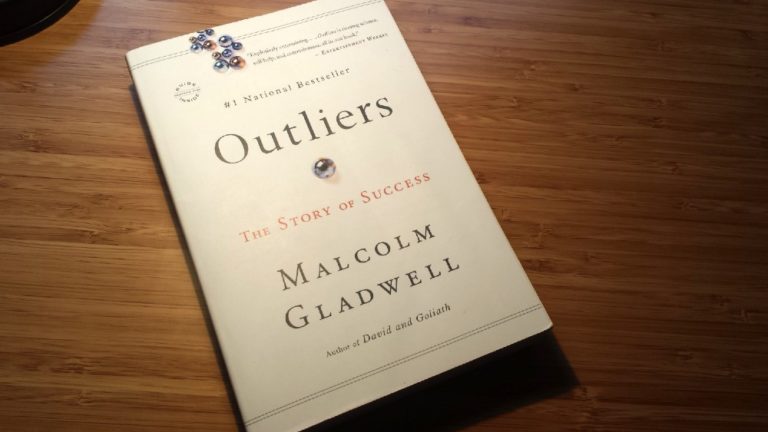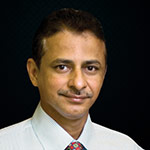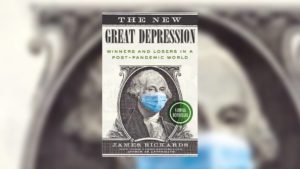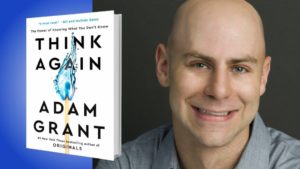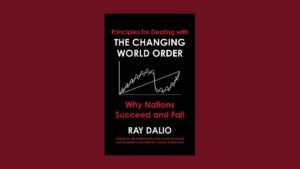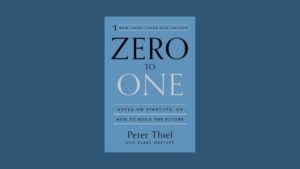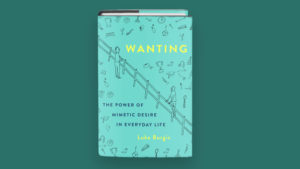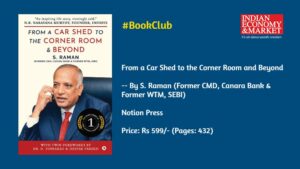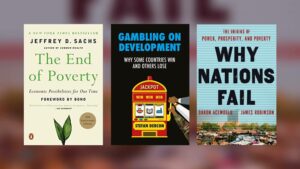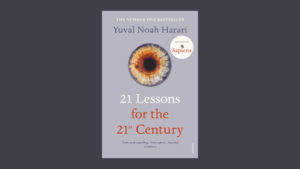About the Book
Success is nothing but a series of favourable outcomes of the choices that we make on a day-to-day basis.
The dictionary defines Outlier as “something markedly different in value from the others.” In his third non-fiction book, Malcolm Gladwell explains, through case studies, “the self-made man” might be a myth. The author explains that we pay too much attention to what successful people are like, and too little attention to where they are from: that is, their culture, their family, their generation, and the idiosyncratic experiences of their upbringing. He brings out statistics to show what truly lies behind the success of the best people in their field, which is often a series of lucky events, rare opportunities, and other external factors, which are out of control for ordinary people.
The author insists to broaden our view that hard work plus intelligence may not be the only key to success. A lot may depend on the overall surroundings and position of a successful person and his ability to leverage his current situation to further strengthen his position on the ladder to success.
The author tells interesting stories with facts and data making them more relevant and enables the reader to easily relate to our lives. The book decodes success and makes us aware of our shortcomings. These tales make one wonder how unpredictable unforeseeable turns course our future paths and decide our destiny. Facts and data are very well weaved in the writing, making it more relevant to the reader.
From the Book
“In Outliers, I want to convince you that these kinds of personal explanations of success don’t work. People don’t rise from nothing. We do owe something to parentage and patronage. The people who stand before kings may look like they did it all by themselves. But in fact, they are invariably the beneficiaries of hidden advantages and extraordinary opportunities and cultural legacies that allow them to learn and work hard and make sense of the world in ways others cannot.”
“…the tallest oak in the forest is the tallest not just because it grew from the hardiest acorn; it is the tallest also because no other trees blocked its sunlight, the soil around it was deep and rich, no rabbit chewed through its bark as a sapling, and no lumberjack cut it down before it matured.”
“You can’t buy your way into Major Junior A hockey. It doesn’t matter who your father or mother is, or who your grandfather was, or what business your family is in. Nor does it matter if you live in the most remote corner of the most northerly province in Canada. If you have the ability, the vast network of hockey scouts and talent spotters will find you, and if you are willing to work to develop that ability, the system will reward you.”
“Roseto was an outlier. There was no suicide, no alcoholism, no drug addiction, and very little crime. They didn’t have anyone on welfare… the Rosetans visited one another, stopping to chat in Italian on the street, say, or cooking for one another in their backyards…the extended family clans that underlay the town’s social structure… many homes had three generations living under one roof, and how much respect grandparents commanded… They picked up on the particular egalitarian ethos of the community, which discouraged the wealthy from flaunting their success and helped the unsuccessful obscure their failures.”
“They wouldn’t be able to understand why someone was healthy if all they did was think about an individual’s personal choices or actions in isolation. They had to look beyond the individual. They had to understand the culture he or she was a part of, and who their friends and families were, and what town their families came from. They had to appreciate the idea that the values of the world we inhabit and the people we surround ourselves with have a profound effect on who we are.”




